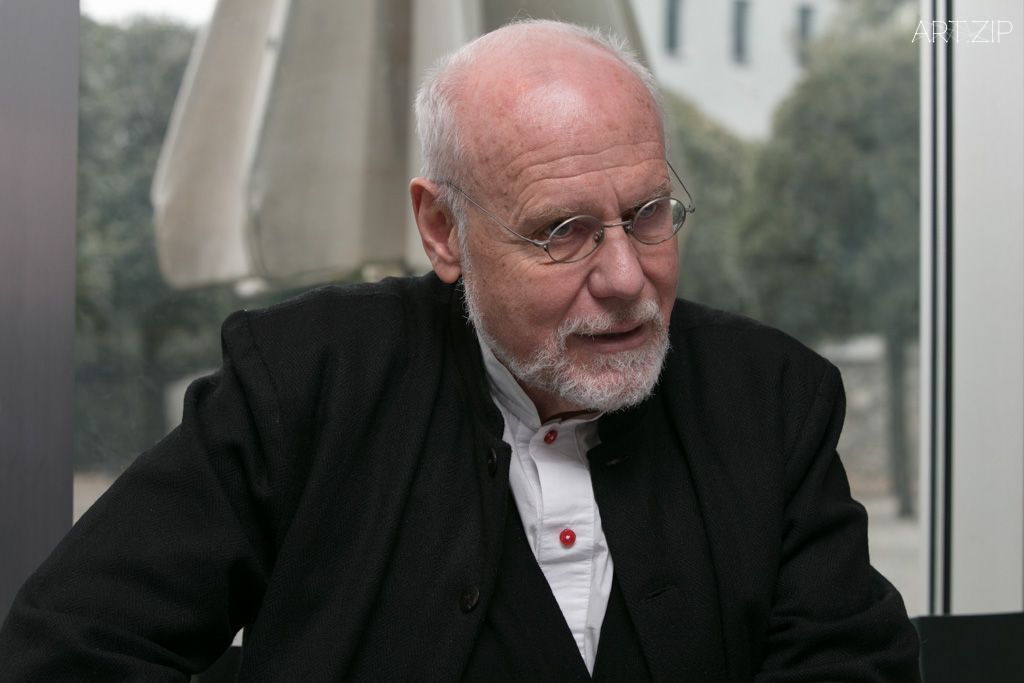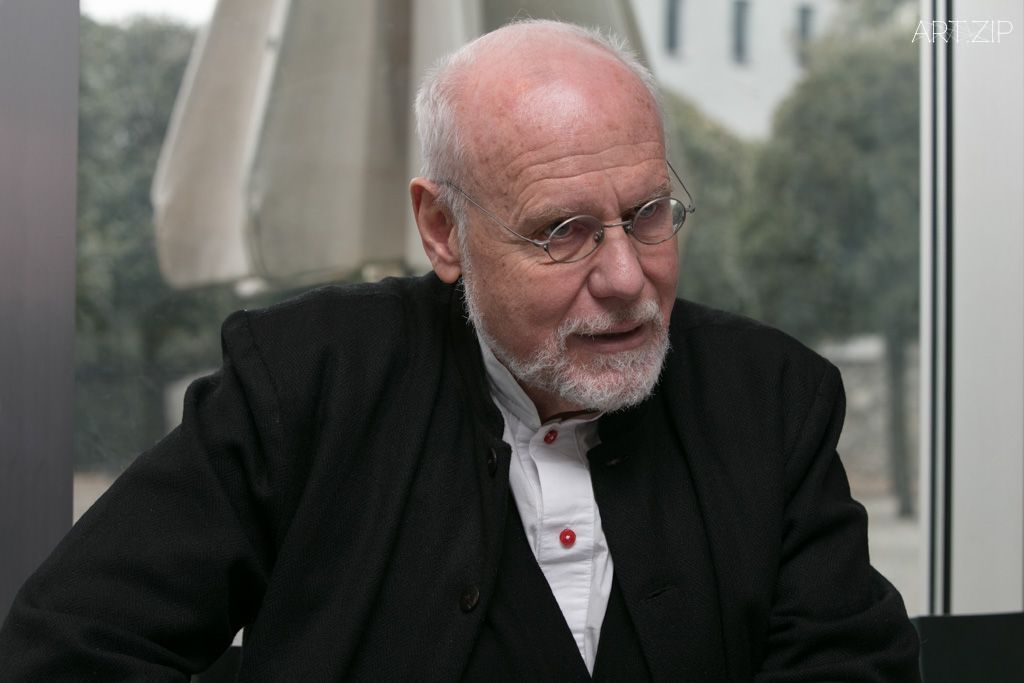
Image Courtesy of 圖片提供 x PYIFF 平遙國際電影展
Translated by 翻譯 x Hao Zhizi 郝智梓
Edited by 編輯 x Michelle Yu 余小悦
Marco Müller is a film critic, award-winning film producer, and former director of prestigious Rotterdam, Locarno, Venice and Rome film Festivals. Renowned for injecting new life into festival, Müller is also one of the first curators to introduce Asian films to European audiences, in particular Chinese cinema. He is honoured as “the first person of introducing Chinese films to the world.”
馬可·穆勒,國際知名影評人、獲獎電影製片人,多次擔任國際重要電影節的藝術總監/主席,如鹿特丹國際影展、洛迦諾國際電影節、威尼斯國際電影節、羅馬國際電影節等。穆勒善於通過一系列改革為電影節注入新活力,也是最早把亞洲電影(特別是中國電影)介紹到歐洲的先驅。因此穆勒被譽為“把中國電影推向世界的第一人”。

Marco Müller. Photo by ©Roberto Pellegrini
ART.ZIP:What prompts the collaboration with Jia to organise the PYIFF?
MM: Jia Zhang-ke has always been a visionary filmmaker. What could therefore be more exciting than to help him realise his vision of a ‘special’ festival in Shanxi?
ART.ZIP: You have engaged in various kinds of film festivals for decades, and you’ve tried to make it revolutionary in some way. So this time, are there any ideas or projects that did not carry out in the previous film festivals for some reasons, but manage to do so in PYIFF?
MM: The economic climate of the past five years has been marked by a sense of fear for film festivals worldwide. Festival organizers have been faced with difficult managerial decisions: whether it was rethinking niche programming or seeking new funding streams, action had to be taken to keep festivals from falling behind. Film festivals must become again crucial exhibition circuits. They represent the antidote to market homologation – they nurture film culture, affirm the multi-faceted identities of contemporary cinema, create visibility for the new film-artists they showcase, facilitate the promotion of the very original works. Those very original works that could now in China receive a theatrical release within the newly-created art-cinema circuit.
The miracle of film festival programming is that a small team of programmers watch hundreds of films and choose only those few (our PYIFF will only show 40 new films) that they consider worthy of being shared with all the different groups of audience. Curatorial work can create a more capacious vision of freedom.
ART.ZIP: What would you expect PYIFF to achieve this year?
MM: We should be able to fulfil at least three tasks: 1. to champion talented and innovative new film artists, introducing them to young viewers in China; 2. to build an expansive reach with an army of the most original auteurs and genre directors; 3. to play a role in the global expansion of Chinese-language cinema. We have striven to strike a balance between artistic research and the part of genre cinema that has stayed engaging and rich in texture. We want to focus on new directors, and also to filmmakers who have been able to literally “reinvent” themselves, turning their attention to intriguing material and to compelling issues.
ART.ZIP: How would you balance the artistry of film with the Chinese national situation under its particular regulations?
MM: An international film festival, while opening a window to the world, serves also as a platform for the national industries to dialogue with foreign professionals and international media – but more particularly to engage also the various – and different – groups of viewers. PYIFF could strengthen the network of film culture, assume the role of a permanent event, trying in every way to extend outside the days of the event, and through the whole year, the excitement of young viewers for all kinds of cinematic experiences.
There is definitely also a strong case to be made for the spin-off industrial and economical benefits generated by a ’special’ festival – stimulating tourism, industry and business. Not forgetting the substantial multiplier effect that has been evident in regions that have invested money and energy in developing their local film and television industry in connection with a festival that would link them to the global scene. PYIFF would also be an exceptional platform to promote Pingyao and Shanxi as a location for international film shoots.
ART.ZIP: China has been named as the world’s fastest-growing film market, what do you think of this growth and Chinese film industry?
MM: From the mid-1990’s onwards, China entered into an era of unprecedented economical and social transformation, touching every strata and aspect of its society and culture, while altering in a definitive way the composition of its social landscape. Chinese cinema has been a mirror of this transformation. To the point that central film authorities have started urging the unification of politics and market. But a central hub for international exchanges and for the cross-fertilization of talent, ideas and techniques was still needed. Will PYIFF become that central hub? PYIFF should at least be able to act as a catalyst to bring forth the new Chinese talents to launch in both the national and international arena.
ART.ZIP:是什麼機緣促使您和賈樟柯導演一同舉辦平遙國際電影展?
MM:賈樟柯一直是一位非常有遠見、有情懷的電影人。能幫助他將他一直以來的情懷付諸實踐,在山西舉辦一個“特別”的電影節,我倍感激動。
ART.ZIP:在過去的數十年中,您曾經為許多不同類型的電影節工作過,而您也一直希望能夠對電影節本身進行一些革命性的嘗試。您有沒有什麽之前在其他電影節因為種種原因無法去實踐的想法、計劃,在這屆平遙國際電影展上得以實現的呢?
MM:過去五年,全球經濟環境的不景氣也讓全世界的電影節倍感憂慮。組織者們面臨著一些棘手的抉擇,而不論是反省電影節過於狹小的受眾,還是尋求其他資金來源,他們都需要通過一些舉措來防止電影節衰敗下去。電影節急需重新成為電影最為重要的展映方式,而它們也是市場引發的同質化的一劑解藥——電影節養育著電影文化,維護著現代電影的多面性特質,同時也為參與電影節的新藝術家們提供受眾,為最具創見的作品進行宣傳推廣。如今在中國,這些十分具有獨創性的新作已經開始在新近出現的藝術院線上映。
一個小小的策展人團隊,在觀看了數百部影片之後,僅僅選出他們認為有價值、能夠與各種不同的觀眾群體分享的一些影片(在我們的平遙國際電影展,這個數字是40部)。我認為這是屬於電影節的奇跡。策展工作可以提供一種具有更廣闊維度的自由。
ART.ZIP:您對今年的平遙電影展有什麽期許?
MM:我們應該能夠完成至少三個任務:第一,獎勵那些有天賦的、創新的新銳電影人,並將他們介紹給中國的年輕觀眾;第二,建立一個極具包容性的人脈網,其中包含著最具創見的作者導演,以及類型片導演;第三,為華語電影的全球性傳播助力。在那些進行藝術實踐的影片和那些同樣引人入勝並且有著良好質感的類型電影之間,我們一直在嘗試保持平衡。我們希望能夠關注新銳電影導演,同時,對那些成功轉型,開始關注一些有趣的現實素材和社會問題的電影人,我們也同樣保持著關注。
ART.ZIP:在中國的特殊管制環境之下,你們如何保持電影的藝術性?
MM:一個國際性的電影節,在具有它的全球性視野的同時,同樣是一個本土電影產業與國外電影工作者、國際媒體交流、對話的平臺——然而更重要的是,它面向的是多樣的,甚至差別巨大的觀眾群體。平遙國際電影展如果能夠順利地長期舉辦下去,它會系統性、輻射性地去強化電影文化在中國的影響,嘗試將其影響力延伸到電影展的日期之外,為年輕的觀影者們提供各種各樣的電影體驗。
當然,一個特別的電影節也會對經濟和整個產業鏈帶來許多有利的衍生價值——旅遊業、工業和商業都會從中獲益。而對於那些大力投資力圖發展當地影視產業的地區來說,平遙國際電影展將為他們帶來走向國際的機會,這對它們來說具有重大的意義。平遙和它所在的山西省都是非常好的電影取景地,而電影節也是一個絕佳的向國際電影人展現平遙、展現山西的平臺。
ART.ZIP:中國已經成為世界增長速度最快的電影市場,您對於這種迅猛增長,以及整個中國電影工業怎麽看?
MM:從90年代中期開始,中國進入了一個空前的經濟、社會轉型期,這也影響了其社會和文化的各個階層、各個方面,整個社會環境也當然隨之改變。中國電影一直反映著整個社會的變革,直到管理者開始要求將政治需求和市場需求統一起來。然而,中國仍然需要一個以與世界交流人才、觀點和技術為其職能的中心樞紐。平遙電影展能夠成為那個樞紐嗎?至少,平遙國際電影展能夠作為一個將中國年輕電影人帶上國內、國際舞臺的催化劑而存在。

